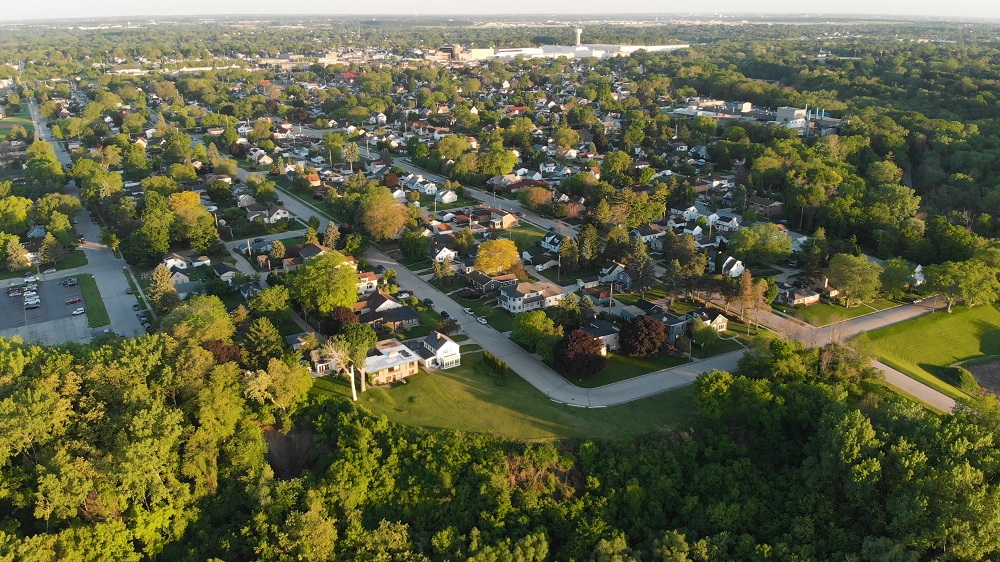 The Appellate Court of Illinois, First District, recently held that the borrowers’ appeal in a mortgage foreclosure action was moot for failure to timely perfect a stay of enforcement of the final judgment.
The Appellate Court of Illinois, First District, recently held that the borrowers’ appeal in a mortgage foreclosure action was moot for failure to timely perfect a stay of enforcement of the final judgment.
A copy of the opinion in Old Second National Bank, N.A. v. Karolewicz is available at: Link to Opinion.
The opinion arises from numerous appeals filed in a mortgage foreclosure action. A mortgagee (“Mortgagee”) instituted foreclosure proceedings against a husband and wife (“Borrowers”), who both contested the foreclosure.
During the course of the litigation, numerous motions were filed and orders entered. Borrowers filed one notice of appeal in relation to certain orders and Mortgagee filed two notices of appeal. The Appellate Court consolidated the appeals.
The Appellate Court first considered its jurisdiction over each of the appeals. The first appeal was filed by Borrowers on Oct. 11, 2019, from the judgment of foreclosure, order confirming sale, and order denying the motion to vacate. The Court found it had jurisdiction over this appeal under Illinois Supreme Court Rules 301 and 303(a) because the order approving sale constituted a final order that became appealable upon denial of Borrowers’ timely post-judgment motion to vacate on Sept. 13, 2019.
In so ruling, the Appellate Court held that the trial court’s June 18, 2019 order approving the judicial sale was a final appealable order. EMC Mortgage Corp. v. Kemp, 2012 IL 113419, ¶ 11. Borrowers’ July 17, 2019 motion to vacate the order approving sale was a post-judgment motion under section 2-1203(a) of the Illinois Code of Civil Procedure which tolled the time for filing a notice of appeal from the June 18, 2019 final order. See Ill. S. Ct. R. 303(a). Borrowers’ post-judgment motion to vacate was denied on Sept. 13, 2019, and possession temporarily stayed through Oct. 13, 2019. Thus, the Court held the court’s Sept. 13 denial of the only timely post-judgment motion directed at the judgment made the June 18, 2019 order approving sale, final and appealable.
Borrowers filed their notice of appeal on Oct. 10, 2019, within 30 days of the trial court’s denial of the motion to vacate, and on Oct. 11, 2019, filed a motion to reconsider the Sept. 13 denial of the motion to vacate. The Court found the trial court lacked jurisdiction over Borrowers’ motion to reconsider for two reasons: (1) the October 2019 notice of appeal divested the court of jurisdiction to modify the judgment (General Motors Corp. v. Pappas, 242 Ill. 2d.163, 174 (2011)); and (2) the Oct. 11 motion to reconsider was a successive post-judgment motion which is not permitted by the Illinois Supreme Court’s rules (Ill. S. Ct. R. 274 (eff. July 1, 2019).
However, the Appellate Court found that the Oct. 10, 2019 notice of appeal did not divest the court of jurisdiction over matters “collateral to or incidental to the judgment.” Pappas, 242 Ill.2d at 174. The Illinois Supreme Court previously held that a motion to stay enforcement of a judgment is “collateral to the judgment” and that it “does not affect or alter the issues on appeal, Id. citing Steinbrecher v. Steinbrecher, 197 Ill.2d 514, 526 (2001). Thus, the Appellate Court held that the October 2019 notice of appeal did not deprive the trial court of jurisdiction to consider the request for stay of enforcement, which was granted on Jan. 8, 2020.
Mortgagee argued that jurisdiction existed for both its notices of appeal. However, the Appellate Court held that the trial court’s Jan. 8, 2020 and Oct. 27, 2020 orders were not appealable judgments or orders, and it therefore lacked jurisdiction over Mortgagee’s appeals.
First, the Court found no authority to suggest it had jurisdiction to review a trial court’s order granting a post-judgment stay of enforcement of a judgment. The Appellate Court noted that an order granting a stay of enforcement is not a judgment, but instead affects the parties’ ability to execute the judgment. In addition, the Appellate Court found Rule 304 — which governs final judgments that do not dispose of the entire proceeding — was not applicable as the order staying enforcement was not one of the enumerated types of appealable orders without a special finding required by Rule 304(a). Ill S. Ct. R. 304(b).
The Appellate Court also rejected Mortgagee’s additional arguments, holding that: (1) Rule 305 was inapplicable as it contains no provisions regarding appealability of a trial court’s order staying enforcement of a judgment; (2) Rule 306 was inapplicable as it governs interlocutory appeals by permission which require a petition for initiation; and (3) Rule 308 was inapplicable as governing appeals from questions of law certified for review. As to Rule 307, the Court held it also did not apply as it has been held that it only applies to interlocutory orders entered prior to a final judgment. Gardner v. Mullins, 234 Ill.2d 503, 509-10 (2009).
Thus, the Appellate Court ruled that an order staying enforcement of a judgment is not an appealable final judgment under the Illinois Supreme Court rules, and the rules do not provide a mechanism for seeking review of such a post-judgment order.
The Appellate Court next considered the arguments as to whether Borrowers’ appeal was moot. “An appeal is moot if it involves no actual controversy, or the reviewing court cannot grant the complaining party effectual relief.” Deutsche Bank National Trust Co. as Trustee for Indymac Indx Mortgage Loan Trust 2006-AR25 v. Roman, 2019 IL App (1st) 171296, ¶ 21 (citing Steinbrecher, 197 Ill. 2d at 522-23). “It is well established that, in the absence of a stay, when the property that is the subject of an appeal is sold to a third party who is not a party to the litigation or a nominee for a party to the litigation, the appeal is moot.” Id. (collecting cases).
The Appellate Court examined Rule 305(k) which protects the rights of a third-party purchaser. “Rule 305(k) applies if (1) the property passed pursuant to final judgment, (2) the right, title, and interest of the property passed to a party who is not a party to the action, and (3) the litigating party failed to perfect a stay of judgment within the time allowed for filing a notice of appeal.” Deutsche Bank Nat’l Trust Co. v. Roman, 2019 IL App (1st) 171296, ¶ 23. Applying the Roman factors, the Court found the Borrowers’ appeal was moot.
Borrowers argued that the third-party buyer made itself a party to the litigation when the trial court granted its petition to intervene prior to the judgment becoming final. The Appellate Court disagreed, relying on the reasoning in Steinbrecher and Roman. The Appellate Court noted that third-party buyer did not participate in the litigation prior to the order confirming judicial sale and it filed its petition while the post-judgment motion was in briefing. Thus, the Appellate Court found that it was a mere purchaser of the property whose only interest in the litigation was protecting its future possessory interest in the property.
The Appellate Court further held that Borrowers failed to perfect the stay of enforcement within the time for filing a notice of appeal.
Borrowers set forth numerous arguments as to why they timely perfected a stay of enforcement, all of which were rejected by the Appellate Court. As one argument, Borrowers asserted that the trial court properly used a nunc pro tunc order to find their December 2019 motion for extension to file a motion to stay enforcement was timely. However, examining the language of the trial court’s order, the Appellate Court could only conclude that the trial court believed it could use a nunc pro tunc order to give the motion for extension of time to file a motion to stay enforcement retroactive effect. However, the Appellate Court noted that the trial court could only properly use a nunc pro tunc order to correct an order that incorrectly reflected, by omission or clerical error, the court’s prior ruling. In re Marriage of Breslow, 306 Ill. App. 3d 41, 53-54 (1999).
The Appellate Court found the trial court’s use of a nunc pro tunc order was improper as there was nothing in the record to support the use of such an order to grant relief that was belatedly requested. The Appellate Court further found that the improper entry of the nunc pro tunc order did not cure Borrowers’ failure to perfect a stay of enforcement within the time for filing a notice of appeal.
Thus, the Appellate Court dismissed Mortgagee’s appeal for lack of jurisdiction and dismissed Borrowers’ appeal as moot.


